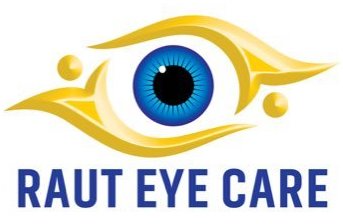
Femtosecond LASIK or femto lasik is an advanced vision correction procedure, represents a groundbreaking leap in the field of refractive surgery for your eye. With its precise and tailored approach, Femtosecond LASIK offers a multitude of benefits that have transformed the lives of countless individuals seeking freedom from glasses and contact lenses.

Femtosecond LASIK, also known as All-Laser LASIK, offers several advantages compared to traditional LASIK procedures that use a microkeratome blade for flap creation. Here are some of the advantages of Femtosecond LASIK:
Precise Flap Creation: Femtosecond LASIK utilizes a femtosecond laser to create the corneal flap with remarkable precision. This method allows for consistent flap thickness and diameter, resulting in a more predictable outcome.
Customization: The laser used in Femto LASIK can create custom-designed flaps tailored to the unique characteristics of each patient's eyes. This customization can optimize the corneal shape and vision correction, potentially leading to better visual outcomes.
Reduced Flap-Related Complications: By eliminating the use of a mechanical blade, Femto LASIK significantly reduces the risk of certain flap-related complications, such as irregular flaps, incomplete flaps, or buttonhole flaps. The laser-created flap has smooth edges and precise dimensions, enhancing the safety and reliability of the procedure.
Enhanced Safety: The use of a laser in Femto LASIK increases the safety profile of the procedure. It minimizes the risk of human error and allows for greater control during the flap creation process.
Faster Visual Recovery: Patients who undergo Femto LASIK often experience faster visual recovery compared to traditional LASIK. The precise flap creation and reduced disruption to the corneal tissue facilitate quicker healing and visual stabilization.





PRK (Photorefractive Keratectomy):
In PRK, the outermost layer of the cornea is removed before reshaping the
underlying corneal tissue for your eye.
It is suitable for people with thin corneas or certain corneal irregularities.
PRK has a longer recovery period compared to other procedures, with potential discomfort during the healing process.
Vision stabilization may take several weeks for your eye.
LASIK (Laser-Assisted in Situ Keratomileusis):
LASIK involves creating a thin flap from the cornea of your eye, lifting it, and using a laser to reshape the cornea.
It offers a quicker recovery period and generally less discomfort compared to PRK.
The flap creation in LASIK can lead to certain complications, but they are rare.
Femto LASIK (All-Laser LASIK):
Femto LASIK utilizes a femtosecond laser to create the corneal flap instead of using a microkeratome blade as in traditional LASIK for your eye.
It offers similar benefits to LASIK, including a faster recovery period for your eye.
The use of laser technology may provide more precise flap creation for your eye.
ReLEX SMILE (Small Incision Lenticule Extraction):
ReLEX SMILE is a minimally invasive procedure that uses a femtosecond laser to create a small, thin lenticule within the cornea.
The lenticule is removed through a small incision, reshaping the cornea to correct vision.
It does not compare with the visual outcomes given by conotura femtolasik and also may take a longer time to heal.
More corneal tissue is lost during SMILE procudre than femtolasik


